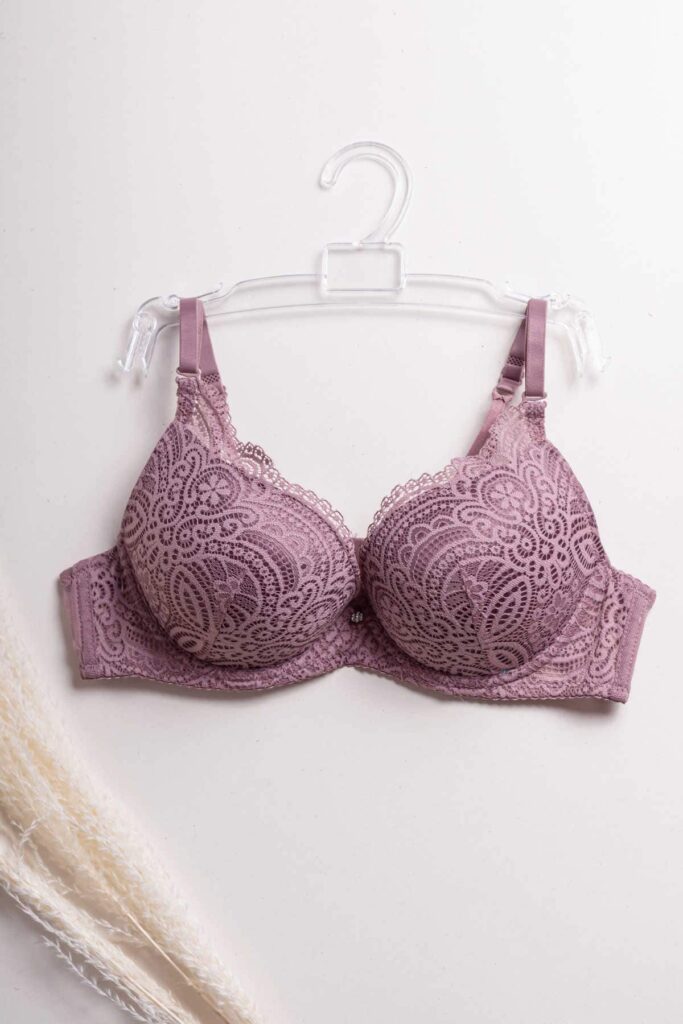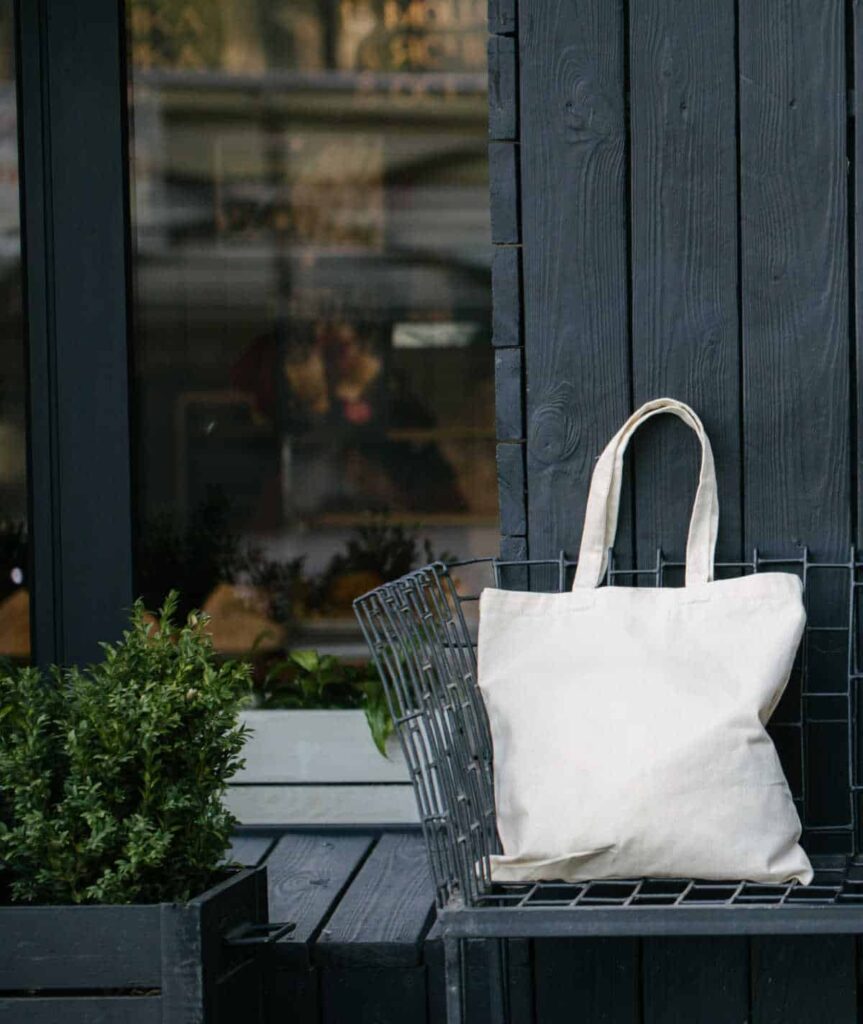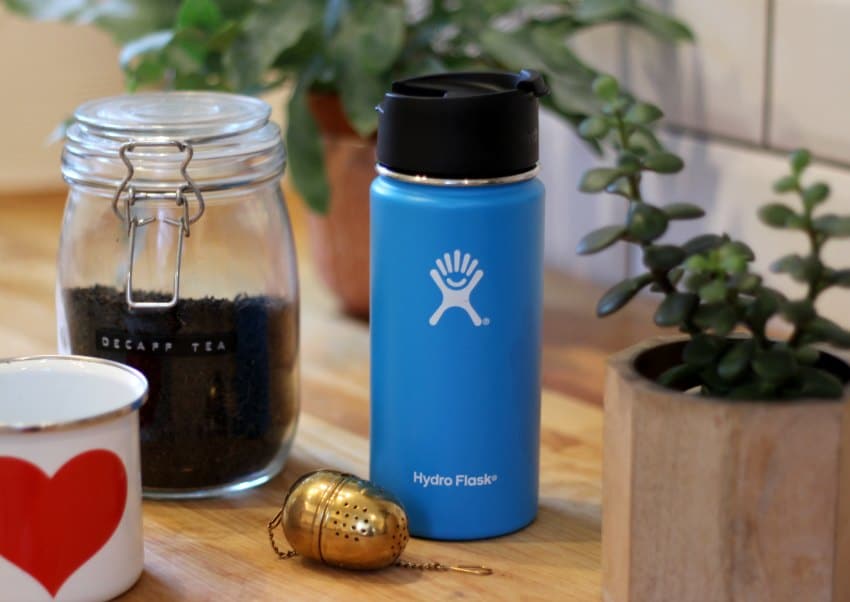A Beginner’s Guide To Ethical Wine
To support the running costs of Moral Fibres, this post may contain affiliate links. This means Moral Fibres may earn a small commission, at no extra cost to readers, on items purchased through these links.
Let’s raise a glass to ethical wine. Covering the issues to be aware of in the wine industry to the organic, Fairtrade, vegan, and sustainable wine best buys available right now, here’s all you need to start your sustainable wine journey.
Wine is the most popular alcoholic drink in the UK. And whether you’re a fine wine connoisseur, or just like a glass or two at the weekend, we all have our reasons for choosing our favourite brand of wine. For some, it revolves around taste. We choose a grape variety that we like and stick to it. Meanwhile, others might study the tasting notes and awards labels to find something new to drink.
Whatever your preferred technique of choosing what bottle of wine to try next, have you ever stopped to think about how ethical your favourite wine is?
Admittedly, wine might not feel like it has much of an environmental impact. It’s made from grapes and comes packaged in glass bottles after all. Yet behind the fancy labels, there are lots of ethical concerns. From the conditions the pickers and workers labour in, to the added chemicals and the environmental impact of the vineyard, some wineries are more sustainable than others.
If you’re wondering what it takes to create a more ethical wine, and the brands and retailers who are pioneering this work, then I will reveal all.
- The Ethical Issues Behind Wine Production
- Would You Like Some Pesticides With That?
- The Rise Of Organic Wine
- The Importance Of Fairtrade
- The Best Ethical Wines To Enjoy Responsibly
The Ethical Issues Behind Wine Production

Despite the fancy labels and awards, your wine might be hiding the fact that it’s been made with forced labour.
In 2023, 200 victims of forced labour were rescued from were from vineyards in the southern State of Rio Grande do Sul in Brazil. Fair Planet reports that the workers were subjected to 18-hour workdays, physical violence through the use of electric shocks and pepper spray, and were given delayed and low payments. They were also unable to leave the vineyards and were forced to live in degrading conditions.
Meanwhile, investigations by the International Labour Organisation (ILO), in 2015 into large vineyards in South Africa, which was followed up by Scandinavian public service broadcasters, in 2016, both highlighted the poor conditions and lack of rights for many vineyard labourers.
Here, workers were found to be living in cramped conditions in cardboard houses, surviving on less than $4 a day. In some areas, some workers were being paid with alcohol instead of cash. Workers were also provided with inadequate protection against the pesticides being used, many of which are banned in the West.
It would be easy to think that modern slavery only exists in countries with less stringent labour regulations. However, Investigations by EuroPol, the law enforcement agency of the European Union, found 269 possible victims of exploitation on vineyards and farms across Europe in 2021.
Vineyard Magazine – a magazine for growers and winemakers in the UK – even warns its members of the problems of modern slavery within the wine industry, and helps them to recognise the signs of third-party labour exploitation within their business.
It certainly paints a dark reality behind the expensive bottles and clever branding.
Would You Like Some Pesticides With That?
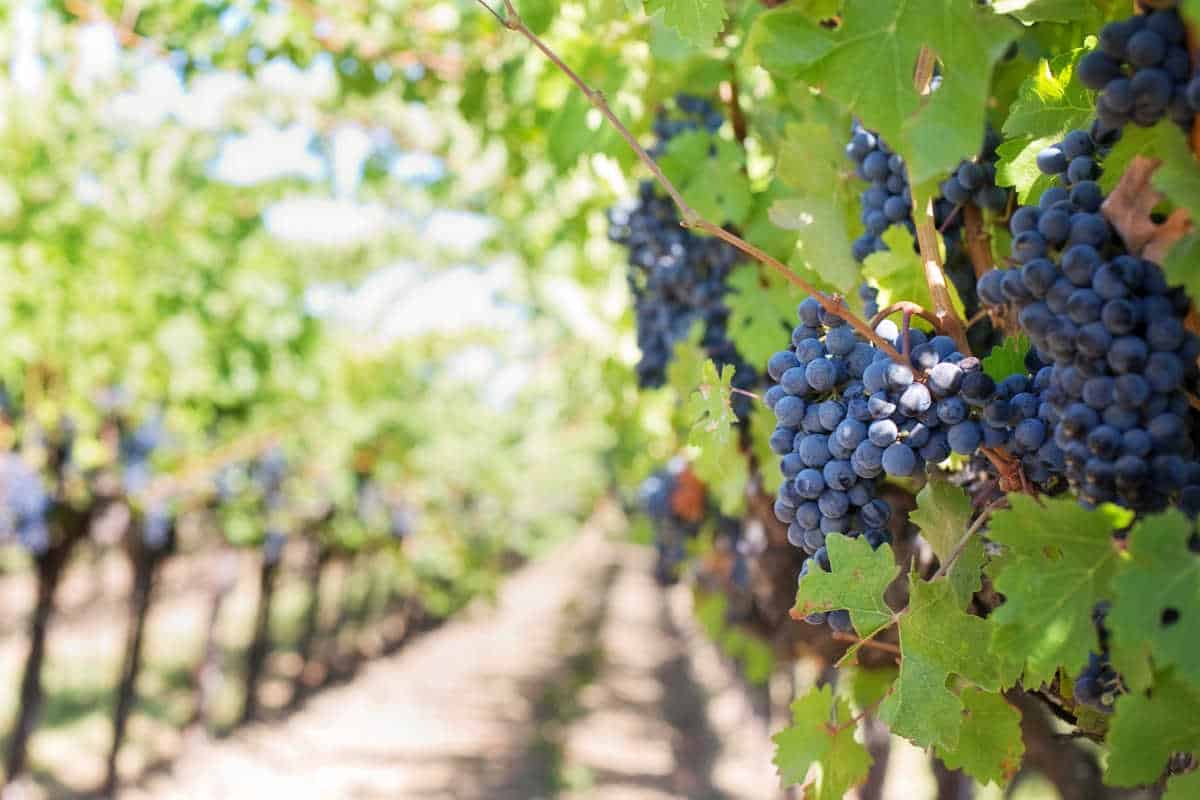
As well as forced labour, the other ethical issue to be aware of is that many wines contain a cocktail of pesticides.
In December 2023, Pesticides Action Network UK (PAN UK) reported that data from the UK Government’s food and drink testing programme showed a large increase in the number of wines that contain traces of multiple pesticides – from 14% in 2016 to 50% in 2022.
Through its own analysis of the data, PAN UK also said that six different pesticides were found in a single wine sample, “calling into question the reliability of the UK’s regulatory system which carries out safety assessments solely for individual chemicals.”
While the impacts of pesticides in our wine are currently unclear, research has been undertaken on the effects of vineyard pesticide use on local communities, and wine industry workers. Here, research published in October 2023 found that children in France who lived near dense vineyards had a slightly increased risk of developing leukaemia. Meanwhile, other studies have found that vineyard workers are at a greater risk of developing illnesses caused by exposure to pesticides.
The Rise Of Organic Wine
There’s a simple way to challenge the problems within the wine industry. That is to drive change through our wallets.
Switching to organic wines is the ultimate ethical way to protect workers, the environment, and yourself from the harmful effects of pesticides.
Organic vineyards must support biodiversity and enhance soil health, whilst minimising the use of pesticides, herbicides, fungicides, and chemical fertilisers. They use cover crops to attract natural predators of the pest species. And they build better soils with composts and manure. Producers are also restricted on sulphur dioxide levels. This is great news if you have an allergy to this chemical. And, of course, the wine must include no genetically modified crops.
The Importance Of Fairtrade Wines
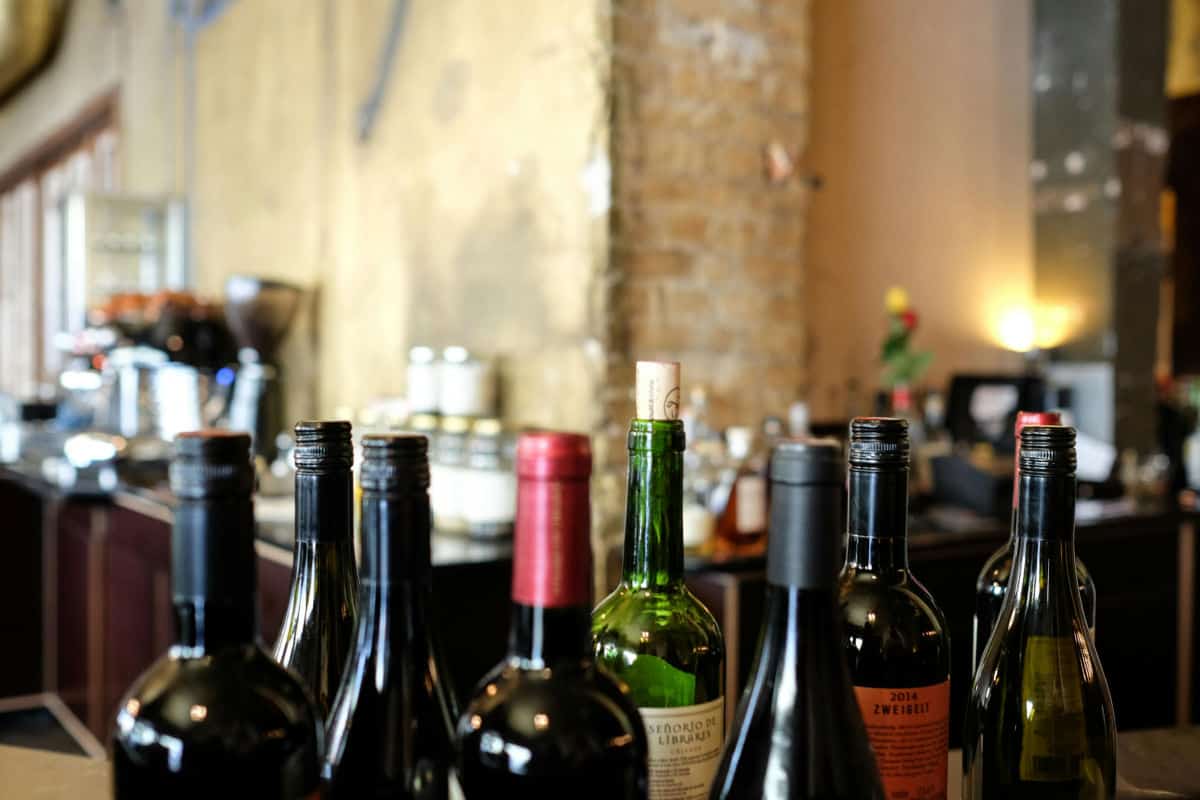
As well as buying organic brands, you can further ensure that workers are protected by switching to Fairtrade wines. The Fairtrade Standard means that farmers and workers receive a fair price for their wine, as well as an additional premium to invest in their business or community. This premium is often spent on essential services such as education, sanitation and health care, and can be transformative to communities. Workers rights are also protected.
Thankfully, you don’t have to look far for Fairtrade wine in the UK. It’s already well developed, with 20 million litres of Fairtrade wine are sold each year in the UK. So far, South Africa and Argentina are leading the way in producing Fairtrade-certified wine. However, many more vineyards around the world are becoming Fairtrade certified, so you don’t have to limit yourself to South African or Argentinian wine.
The Best Sustainable Wines To Enjoy Responsibly
Looking to change up your drinking habits? Here are my top picks of ethical and sustainable wine available in the UK:
Coral Ethical Wine

This carbon-neutral winery is set on rejuvenating coral reefs around the world. With every bottle of its delicious vegan and organic wine sold, availalbe retailers like Abel & Cole, 10% of the profits go towards supporting coral reef restoration and conservation projects across the globe.
Sea Change Wine

Sea Change, available at Social Supermarket, combines a love of great wine with environmental action. It’s made partially from grape waste, and is completely plastic-free. Combined with a donation to marine charities from every bottle sold, Sea Change is making a real difference in the wine industry.
Forty Hall Vineyards
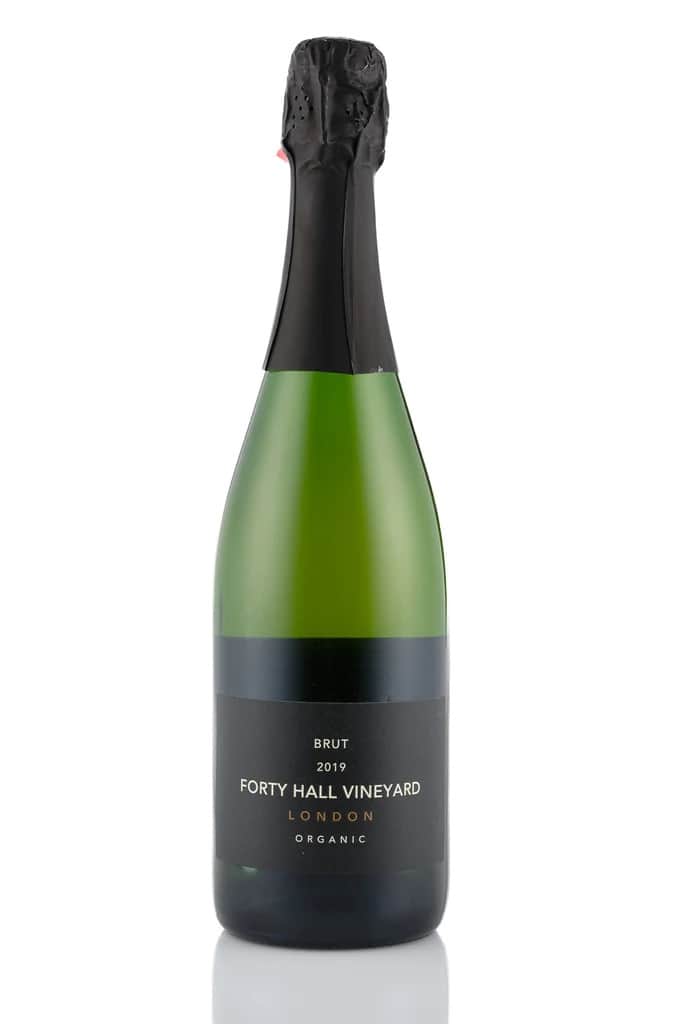
As London’s only vineyard producing organic wine and improving community well-being, this not-for-profit vineyard benefits the local community. Here volunteers – from retirees to young full-time workers and particularly those with mental health issues – help out and leave feeling happier and healthier. Find Forty Hall Vineyards wine at Social Supermarket and other retailers.
The Co-Op Wine
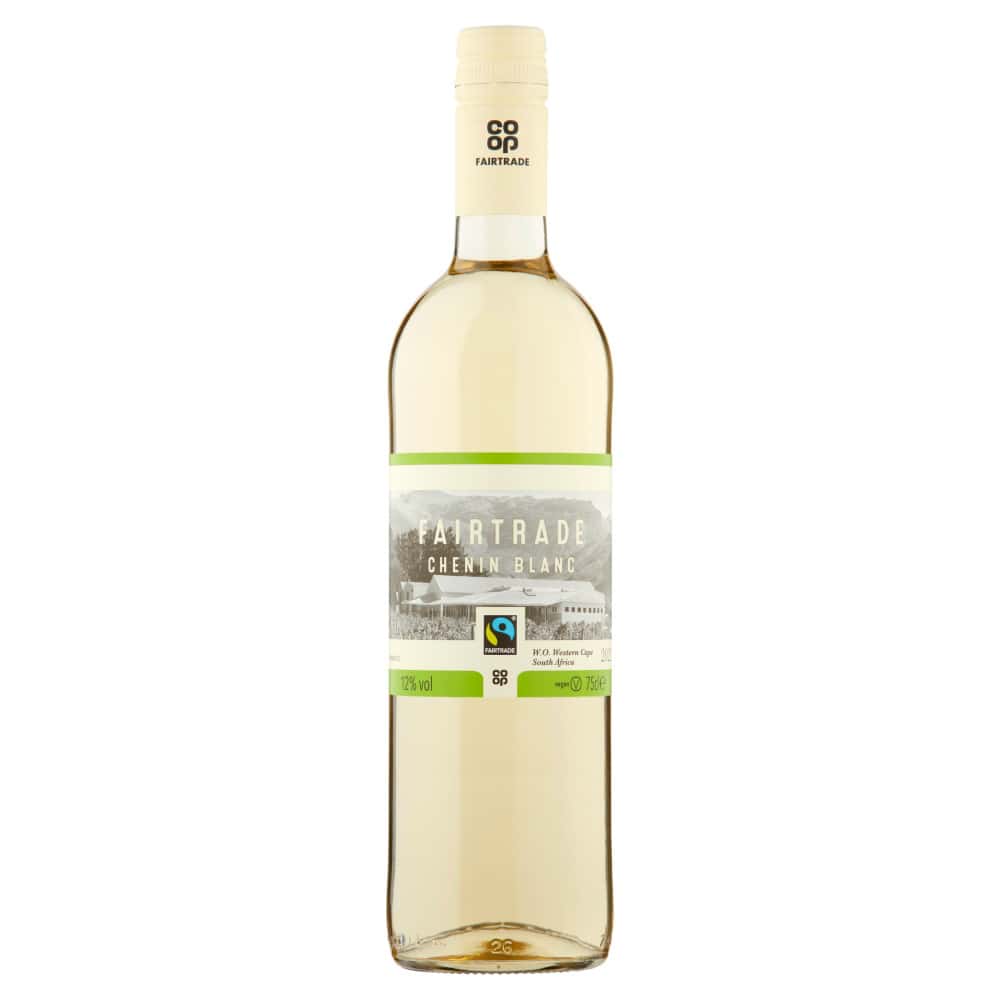
The Co-Op is one of the UK’s largest sellers of Fairtrade wine, with an impressive history. Way back in 2001, it was the first retailer to launch an own-brand fairly traded wine. In 2015, the Co-Op was the largest Fairtrade wine seller worldwide. Meanwhile, in 2022 The Co-Op scored an industry first, when it announced that all of the South African wine it sells, whether it’s Co-Op own label or not, is proudly Fairtrade.
The Hidden Sea

This Fairtrade and vegan wine brand doesn’t just look after its workers. For every one bottle of wine that you buy, The Hidden Sea removes and recycles ten plastic bottles from the ocean. It does this by working in partnership with The ReSea Project.
With wines including Rose, Sauvignon Blanc, Chardonnay and Red, there’s an ethical wine for every occasion. Find it in shops like Sainsbury’s, Asda and The Co-Op.
The Bottom Line
A humble glass of wine can hide a world of forced labour and cocktail of pesticides cocktails. And while drinking too much wine isn’t good for us, there is no reason why our consumption and purchasing decisions can’t be used for good.
By choosing organic and/or Fairtrade wines, we can uplift communities, protect our health, and safeguard the planet. From Coral’s commitment to coral reef restoration to Sea Change’s plastic-free initiatives, each bottle sold can help transform the wine industry to a more ethical one.
Thirsty for more? I’ve also got lots more content on wine and alcoholic beverages. Here’s what to do with leftover wine, to help prevent waste. I’ve got a useful guide to eco-friendly beer. And here’s my guide to sustainable spirits – from gin to vodka, rum and more. And if you need some new glasses, do check out my handy guide to recycled wine glasses and tumblers.
Reader note: this article was originally written by Tim Hunt of Ethical Consumer Magazine, for Moral Fibres, and was published here on 22nd March 2018. The article was significantly re-written and updated by Wendy on 6th February 2024, to provide more up-to-date information and recommendations.
Found this post useful? Please consider buying me a virtual coffee to help support the site’s running costs.


